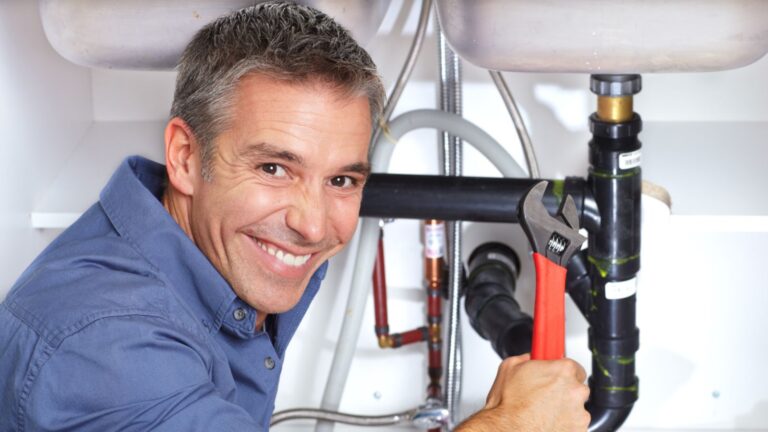When issues arise with your water or drainage, it can cause significant disruption to your home and daily routine. Unfortunately, calling a plumber, while necessary, can be both inconvenient and costly. To help you avoid calling a plumber out for unnecessary reasons, here are 16 common reasons people contact a plumber and some tips on how you can prevent or fix these problems on your own.
Running Toilet

Water that continuously runs into the toilet is often caused by a faulty flapper or an improper chain length. Better Homes & Gardens says, “A constantly running toilet isn’t just an annoyance; it’s also a costly waste of water that you will end up paying for on your next water bill.”
No Hot Water

No hot water can be a nightmare, especially in cold weather, and plumbers are often called out due to faulty heating elements, incorrect thermostat settings, or a failing water heater. It can be helpful to flush your hot water tank every so often to remove sediment, and you should also keep an eye on your thermostat to catch any problems early.
Clogged Drains

Hair, soap residue, and food particles are all common reasons behind a clogged drain. Before calling a professional, Forbes recommends pouring two tablespoons of dish soap down the drain, followed by very hot water, to try and dislodge the blockage. If this doesn’t work, they suggest trying a plunger or a drain snake.
Low Water Pressure

The buildup of debris and minerals in your pipes can reduce the flow of water, meaning you get lower pressure from your taps and showers. This can sometimes be improved with a pressure booster, but it’s important to note that leaks in pipes can also cause low pressure.
Water Heater Issues

A buildup of sediment, issues with your thermostat, and wear and tear in the components can all cause issues with your water heater. Look for inconsistent temperatures or discolored water, which may be signs your heater is beginning to fail.
Leaky Pipes

Corrosion over time, high water pressures, or freezing temperatures can all cause pipes to leak. HowStuffWorks says, although easier said than done, you could attempt to fix the issue yourself. “If the leak is at a joint, tighten the joint. If the leak is in a pipe, remove the section that is leaking and replace it with a new section.”
Sewer System Backup

Backups in your sewage system can be caused by blockages, overgrown tree roots, and broken sewer lines. If your sinks and drains are blocking, you are experiencing foul odors coming from drains, or you are noticing gurgling sounds, it might be time to check if you have an issue.
Dripping Shower Heads

Shower heads can start to leak if they have too much of a buildup of minerals or if the seals get worn out. Regular cleaning can help prevent problems, and you may be able to replace internal components yourself if you can see they’re worn out.
Frozen Pipes

If pipes are exposed to severe weather or are not properly insulated, they can freeze. This can cause them to burst, leading to expensive repairs and water damage. To prevent this, keep your home heated, especially if the weather is due to drop below freezing, and insulate any exposed pipes.
Sump Pump Failure

Sump pumps can fail if there is a power outage, they’re not insulated properly, or they aren’t regularly maintained. To make sure you’re not at risk of flooding, regularly test the pump and clean the pit to keep it in good working order.
Leaky Taps

According to The Spruce, “a dripping faucet can waste an incredible amount of water. One drip each second can waste up to 3,000 gallons per year. That’s enough to fill close to 40 standard-sized bathtubs.” Often caused by a worn-out washer, it’s a worthwhile fix to reduce your utility bills.
Faulty Water Line

A problem with the main water line on your property can cause issues such as reduced water pressure, discolored water, or wet areas outside your home. This can be due to degrading over time, ground movement, or overgrown tree roots.
Inadequate Venting in Plumbing Systems

Having ventilation is crucial for maintaining the flow of water and preventing toxic sewer gases from entering your home. You might spot potential problems with venting; these can include drainage, gurgling sounds, and unpleasant odors. To prevent this, try to make sure your pipes are not blocked or damaged.
Plumbing System Inspection

Calling out a plumber for a regular inspection is a great idea to identify issues such as leaks, corrosion, and wear before they cause significant damage. It might cost you now, but it can save you money in the long run as it may prevent the need for a costly emergency callout.
Hard Water Problems

The type of water you have generally depends on your area. Hard water contains high levels of minerals like calcium and magnesium, which can cause scale buildup in your pipes and appliances, leading to issues or leaks. A water softener can help mitigate these issues and prolong the life of your fixtures and appliances.
Malfunctioning Dishwasher Connections

If your dishwasher isn’t cleaning effectively, is making odd noises, or has water pooling around it, it might have a leak, wear in the hose, or a water supply issue. To prevent this, make sure you regularly check the condition of hoses, connections, and seals and replace any that have signs of wear.

